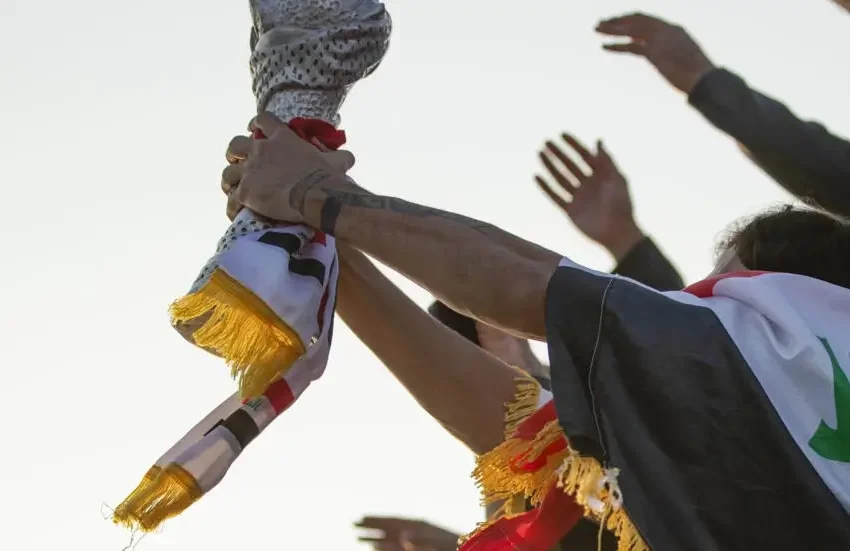Gulf Cup showed that Iraq could host, but the stampede and logistical blunders were inexcusable

Iraq had last hosted the Gulf Cup in 1979 under former dictator Saddam Hussein
Baghdad – Iraq saw the Gulf Cup as a chance to rehabilitate its image after a years-long football hosting ban, but a deadly stampede and organising gaffes have dampened the cheer despite its home victory.
Thursday’s stampede outside a football stadium ahead of the cup final in the southern city of Basra killed one person and injured dozens, medics and security sources have said.
“I felt like I was going to die,” said fan Doha Hashem, recalling being caught in the crush as thousands of others, many without tickets, tried to enter the stadium after massing at the gates from around dawn.
On her way in, she found herself caught “in a tide of people”, she told AFP. “I started to panic. I couldn’t breathe.”
Hashem managed to escape unharmed, but others were not as fortunate.
Security forces eventually dispersed the crowd and the match took place, with Iraq beating Oman 3-2 to bring the cup home.
Fireworks and car horns rang out all night, from Basra in the country’s south to Arbil in the north, as joyful Iraqis celebrated the win, the morning’s tragedy all but forgotten.
– Ticket issues –
But the reputational damage may last longer for war-ravaged Iraq, which had last hosted the Gulf Cup in 1979 under former dictator Saddam Hussein.
In a bid to explain the cause of the stampede, a member of the cup’s organising committee pointed to the ticket-issuing company.
The tickets “are not secure, they can be faked and reproduced easily”, he said, declining to be identified for fear of reprisal.
Interior ministry spokesman Khaled al-Mahna said security forces on site had clearly ordered those without genuine tickets to leave.
But the fans “did not cooperate and a crowd formed”, he told AFP.
The incident was not the first logistical blunder to hit the cup, which is contested by Bahrain, Kuwait, Oman, Qatar, Saudi Arabia, the United Arab Emirates and Yemen as well as Iraq.
Iraq was forced to apologise to its neighbour Kuwait after a scuffle in the VIP section prevented its leader’s representative from attending the January 6 opening ceremony.
On the same evening, thousands of fans with tickets and accredited journalists, including two AFP photographers, were turned away as they tried to enter the stadium.
-‘Good start’-
Long banned from hosting international football events, the Gulf Cup was an opportunity to show that Iraq could safely host a tournament, as the country seeks to rebuild after decades of conflict.
In Basra, hotels and sports facilities were upgraded and work was done to spruce up the city.
The country’s President Abdul Latif Rashid made no mention of the incidents in a tweet after Iraq’s victory, instead describing the cup as a “good start for the country to host more sports events”.
For now, no other international sporting events are on Iraq’s agenda.
FIFA boss Gianni Infantino posted a message on Instagram saying the “thoughts and prayers of the entire football community are with the families and friends of those who have been involved in the incident”.
Iraq is no stranger to hosting large events as its holy cities are pilgrimage destinations for millions of Shiite Muslims each year.
In September, a pilgrimage to the central city of Karbala attracted 21 million faithful and went off without incident.
However, also in Karbala, 31 people died in a 2019 stampede during the Shiite commemorations of Ashura.
